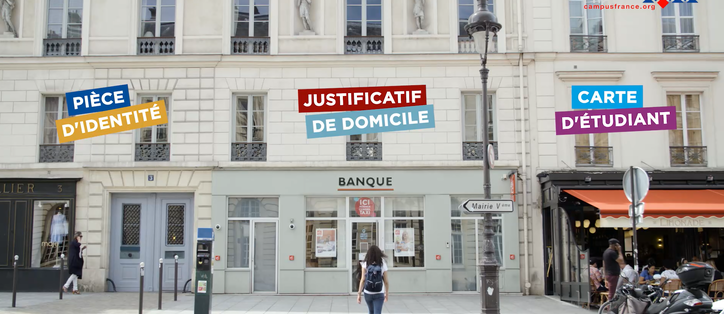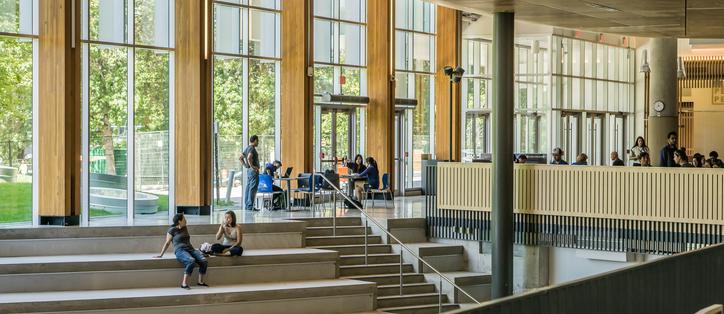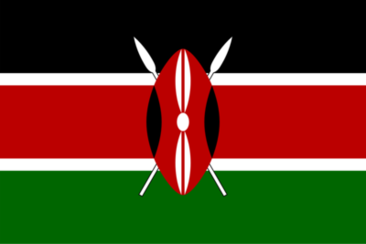You are now sure you will be studying in France from the start of the next academic year. Here you will find everything you need to do and plan on, step by step, to properly prepare for your arrival in France.
As soon as you arrive, make sure to complete the following 6 important steps. Make sure to take care of it immediately.
Pay your contribution to campus and student life
This is the first step to complete, before any other. It is mandatory to register in your higher education institution. You can even complete this step before coming to France.
The contribution to campus and student life costs 90 euros per year. You can pay it onlineat cvec.etudiant.gouv.fr. You can also pay in cash at your local post office.
Our tip: make sure to keep the proof generated after your payment. You will have to provide it during your registration in your institution.
The contribution to campus and student life is paid to the CROUS to facilitate the reception of students and their social, health, cultural and sports follow-up. It also finances prevention activities in relation with health.
All students registered in an initial training in a French higher education institution, whether public or private, must pay this contribution, to the exception of students:
- Holders of a scholarship on social criteria managed by the CROUS or holders of a scholarship from a region
- With the status of refugee or subsidiary protection
- Registered as asylum seeker and entitled to stay on the French territory.
For all other cases, even students exempt of payment of the Contribution to Campus and Student Life (CVEC) must login to the website cvec.etudiant.gouv.fr to validate their exemption and receive a certification allowing them to register to their higher education institution.
For more information, check out our article about the 10 things you need to know about the CVEC
Good to know: students registered in a BTS course are not subject to the CVEC, because they are registered in a secondary school and not a higher education institution.They don't need to login to the websitecvec.etudiant.gouv.fr; no certification will be asked of them.
Registration in your higher education institution
Go to the international relations department of your host institute. While there, get the information you will need to the study in France. Then go to the enrolment department to finalise your enrolment, pay your tuition fees and pick up your student card.
Open a dedicated bank account
It can be very handy to open a bank account in France, in particular for paying bills (electricity, telephone, rent) and subscriptions (transportation, Internet). You will also be able to cash any wages you receive and it's easier to be reimbursed for healthcare expenses. A French payment card also lets you pay for most things so you don't have to carry large amounts of cash with you.
Owning a French bank account is a right recognised by French authorities. A foreign student can open a bank account in any bank in France. The different banks have branches in most cities; just open the door and make an appointment with a counsellor.
Compare what the different banks offer. The costs of the bank card, international transfers and cash withdrawals abroad may vary noticeably from one bank to another.
Three documents are needed to open a bank account: identification, proof of residence and an attestation of enrolment or a student card. If you still don't have any accommodation, you may be able to use the address of the service of international relations of your institution.
After you open a bank account, you will have the right to a bank card and a cheque book. With your Relevé d’Identité Bancaire (RIB - bank account information slip), you will be able to easily make the different monthly payments you have.
If you face difficulties to open an account, a process called "droit au compte" (right to account) can help you: the Banque de France will appoint a bank and force it to open an account for you. Details of this process, documents to provide and associations offering help are available on the Banque de France website.

Validate your residence permit
If you came to France with a visa needing validation, complete these steps in the first days after your arrival.
So far, and before the process changes, you must send your form to the Office français pour l’immigration et l’intégration (OFII, French Office for Immigration and Integration) to validate your residence permit (July 2018). You will then receive a summons to go to the OFII.
You will need a method of payment to pay the OFII tax and the visa rights ranging from 58 to 241 euros. You can pay this in tax stamps. You can purchase tax stamps at a tobacconist or in digital version on the website www.timbresofii.fr.
During your meeting with the OFII, make sure to bring the following justifications:
- convocation;
- passport;
- proof of address;
- ID photograph.
Register to health care
- European students
If you have a European Health Insurance Card (EHIC), you don't need to register to the French social security. You can use your card and receive care in France. This card is issued in your country.
Students included are those with the nationality of a country of the European Union, Iceland, Lichtenstein, Norway or Switzerland.
- Non-European students arriving in France for the academic year 2018 or later
You must register to the French general social security system. Registration is done online by logging in to the website of the health insurance dedicated to foreign students: https://etudiant-etranger.ameli.fr/#/(website to be opened soon).
Registration is free. You must complete your registration immediately after the registration to your institution and after the validation of your visa.
This is a mandatory step. You will be issued a "carte vitale" (social security card) to benefit from reimbursments. You can also subscribe to a healthcare mutual for a better reimbursement of your medical expense.
Our tip: Check out our article about "health, healthcare and healthcare mutuals" for additional details about this process.
DURING THE FIRST MONTH
-
Go to the Admissions Department of your institute or the UFR (Training and Research Unit) to which you are attached to obtain your timetable.
-
Check out the library at your institute to make sure that your library card works properly (your student card often doubles as a library card).
-
Also visit the CROUS department to pick up your Resto U (meal) tickets or activate your e-cash card and the Pass Culture that brings you lots of benefits.
-
If your institute is having an integration week or week-end, don't hesitate to sign up: it's a good way to meet other students and to practise your French.
-
Finally, get in touch with the student associations to learn about the activities they offer throughout the year.
.
















